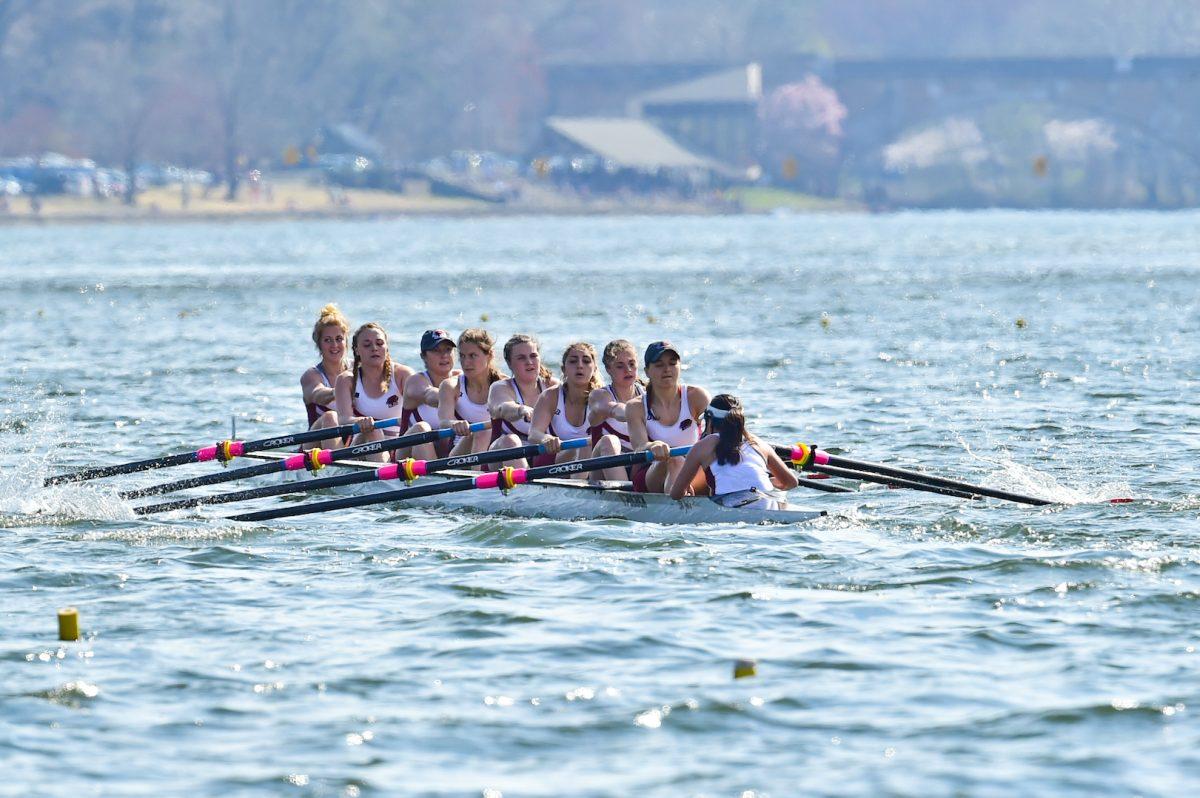Schuylkill River on track to be dredged in 2020
If the Schuylkill River, a major hub for Philadelphia rowing culture, is not dredged within the next year, the river will most likely become unsafe to host regattas. It has been almost two decades since the river was last dredged.
Former St. Joe’s Athletic Director Don Dijulia who spoke directly with the city and the Schuylkill Navy, said the estimated budget for this project would be between $4.5M and $5M, but will be confirmed after the completion of an engineering study. If federal funding does not come through, however, Dijulia said there will be an alternative plan set in place.
“While Congressman Bob Brady is still pursuing federal funding, they wanted it in place for the 2019 budget,” Dijulia said.
“They’re developing plan B if that doesn’t work out.”
Dijulia said the best case scenario is that funding comes through and dredging can start in 2020.
Philadelphia Mayor Jim Kenney will be holding a meeting with stakeholders in late September to give an update on the project.
“There are many areas of inquiry to be done before this issue falls on the stakeholders,” Dijulia said. “The only thing out of the ordinary is that there was not advanced notice that this has been plugged into the federal budget. That was the notification that prompted these discussions.”
While much of the Schuylkill River requires attention, parts of the river need critical maintenance work.
“The more critical areas are along boathouse row,” Dijulia said. “Some lanes on the race course are affected in certain spots, mainly lanes five and six towards the middle. It’s not going to affect this year at all. However, eventually it will be problematic.”
The areas most affected on boathouse row will pose the largest issue for high school rowing programs in the Philadelphia area. John Fife, the head rowing coach for St. Joe’s Preparatory School, said it’s going to become a problem especially if schools can’t get off their dock.
“It’s definitely a lot more critical for the high schools who row on boathouse row, which is all of the high schools that row on our section of the Schuylkill, except for St. Joe’s Prep because our boathouse is upriver,” Fife said.
Fife said the St. Joe’s Prep rowing program has a plan in place in the event that they are forced to move locations from the Schuylkill.
“In preparation for potentially moving out of this venue in the springtime, one of our spring races is going to be held in the Cooper River in Cherry Hill, New Jersey,” Fife said. “That’s a test run in case they would need to move the venue in the future.”
Mike Brown, the head rowing coach for Merion Mercy Academy, said the less than ideal conditions impairs his team’s ability to operate efficiently.
“Every day, fins are getting stuck in the mud,” Brown said. “The motor boats have to be rowed out by a gondolin pole. Otherwise, it’s churning up mud and getting stuck. From an athlete’s perspective, it damages equipment. It also creates unfair lanes on the course.”
Brown also said the poor conditions create a safety issue for the athletes in the water.
“You’re teaching young kids how to row,” Brown said. “If you can’t get a motorboat in the event that something happens, to the kids in the boat, every second matters. On boathouse row there’s a dam that sits right across the river. God forbid someone gets tangled in those ropes and we can’t get to them.”
Dijulia said rowing is one of the major entertainment and sporting items that Philadelphia has to offer.
“It’s very important to the city culture, the sport of rowing,” Dijulia said. “It dates back almost 150 years. All the right people in this city and not just the city government, are interested in the project’s completion.”














































